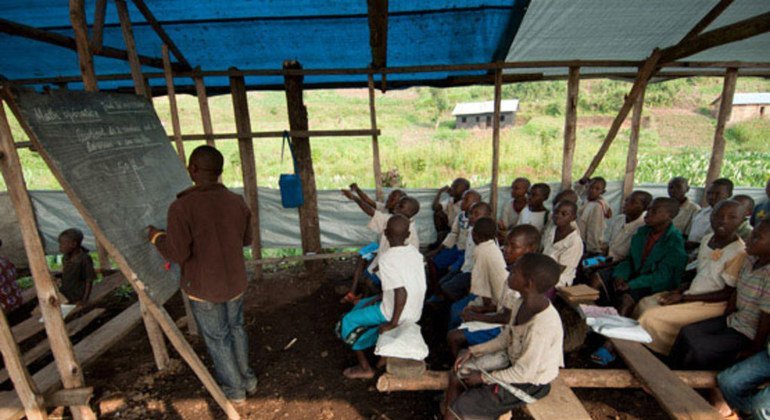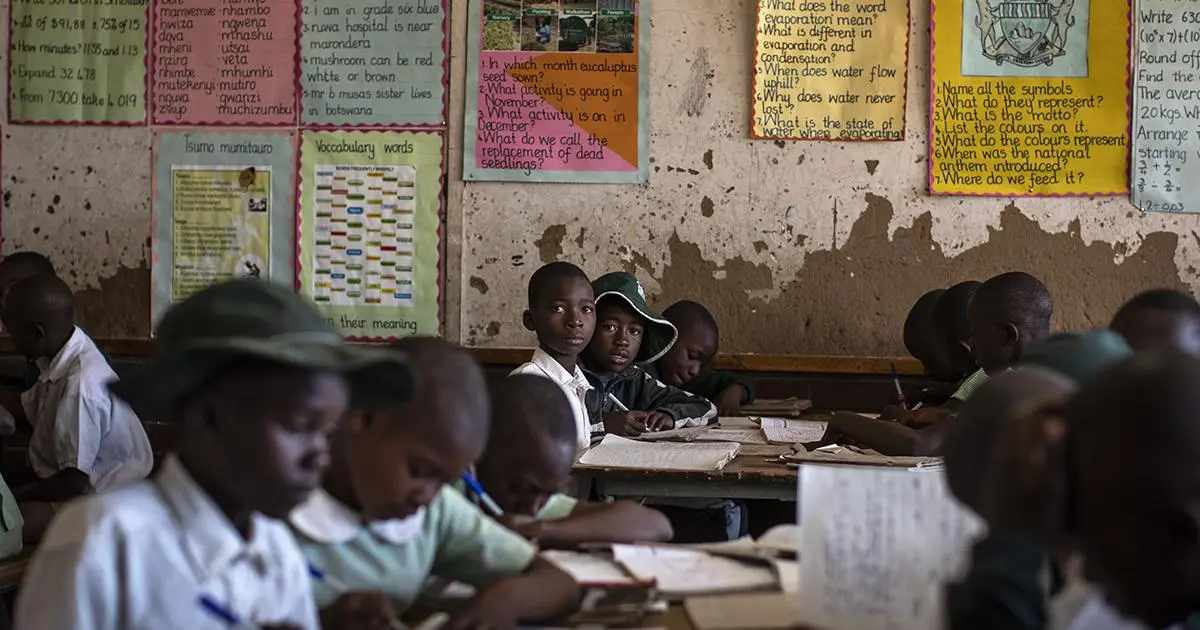Remotly learning in Africa
The world is witnessing continuous developments in technology and communication, with these developments the possibilities of remotly learning in Africa have expanded.
Remotly learning is a valid and effective alternative to traditional education in regions where education is not easily accessible.
The purpose of this article is to examine the challenges and opportunities of remotly education in Africa and the important role it can play in achieving development.
Importance of Remotly Education in Africa
Remotly learning in Africa is an important tool for expanding educational opportunities and promoting development in areas where access to traditional education is limited.
Through remotly learning, students can acquire knowledge and skills that will help them realize their ambitions and increase their chances in the job market.
It also helps raise educational levels, ensure gender equality and expand access to education in Africa.
The purpose of writing about challenges and opportunities
The purpose of this article on the challenges and opportunities of remotly education in Africa is to draw attention to the challenges that the continent faces in implementing this type of education and to analyze the options available to promote it. The aim is to raise readers’ awareness of the importance of remotly learning for socio-economic development in Africa and to provide recommendations for overcoming challenges and exploiting existing opportunities.
Challenges in Implementing Remotly Learning in Africa
Africa faces several challenges in implementing remotly learning. Key challenges include poor access to internet and technology, as well as a lack of technical infrastructure and adequate training.Many students and teachers are struggling to get a stable internet connection and lack the technology and equipment needed to effectively implement remotly learning. To fully realize the benefits of remotly learning in Africa, these challenges must be addressed.
Poor access to internet and technology
Africa faces major challenges in internet access and technology as many students and teachers struggle to obtain a stable internet connection. Poor access is caused by many factors, such as a lack of technical infrastructure and high internet connection costs. Therefore, there is a need to improve technical infrastructure and financially support ICT investments in Africa. Lack of technical infrastructure and adequate training
Africa faces major challenges due to a lack of technical infrastructure and adequate training for remotly learning. Many schools and colleges do not have the technology to run remotly learning programs. Many teachers and staff also lack sufficient training in remotly learning and effective use of technology. To meet this challenge, it is necessary to support the development of technological infrastructures and the provision of adequate training for teachers and students.
remotly learning opportunities in Africa
It is believed that remotely learning opportunities in Africa offer many opportunities and improvements in the field of education.
Through remotely learning, students have access to knowledge and education regardless of the
remotly that separates them from school. Remotly learning also offers tremendous opportunities to expand and strengthen educational equity, as everyone can have the opportunity to acquire and develop skills regardless of geographic and social barriers.

Accessibility to education regardless of remotly
Remotly Learning in Africa offers students the opportunity to access education regardless of the remotly to school. Students can benefit from online courses and educational resources even if they are geographically distant from traditional educational institutions. Through this type of teaching, students can continue to learn and develop their skills flexibly, adapted to their personal and geographical situation.Remotly learning in Africa
Remotly learning in AfricaThe Role of Remotly Education in Achieving African Development
Remotly learning plays an important role in Africa’s development. It increases employment opportunities and contributes to the development of skills needed in the labor market. It also helps to promote equal opportunities in education and improve access to disadvantaged areas. Through remotly learning, African students can benefit from higher education opportunities and online learning resources, supporting the growth and development of societies on the African continent.
Improving employment opportunities and skills development
Remotly learning helps improve employment opportunities and skills development in Africa.Its task is to ensure greater coherence between the skills required by the labor market and the qualifications of students. It also gives you the opportunity to learn technical skills and foreign languages, which are crucial in the global job market. Therefore, remotly learning leads to better employment opportunities and economic development in Africa.
Promote equity in education and expand access to it
Promoting remotly learning plays an important role in achieving educational equity and improving access to education in Africa. Through remotly learning, students from remote and poor areas can access online courses and benefit from education despite long remotlys.This approach also enables people with disabilities and children in difficult life situations to have access to education. Therefore, remotly learning promotes equality in education and offers everyone the opportunity to benefit from quality education and a better quality of life.
About future challenges and proposed solutions
Future challenges that may face the implementation of remotly learning in Africa include the need to increase investment in technical infrastructure and ensure high-speed internet connectivity in remote and poor areas. In addition, adequate training and technical support for teachers and students is required to ensure that they understand and use educational technologies effectively. By addressing these challenges and implementing the proposed solutions, successful remotly learning in Africa and sustainable development can be achieved.

Greater investment in technical infrastructure
Increasing investments in technological infrastructure are one of the key challenges that must be overcome for the successful implementation of remotly learning in Africa. The focus should be on ensuring high-speed Internet access and investing in communication networks and modern technical equipment.In addition, regular maintenance and updating of the existing infrastructure must be guaranteed to ensure its proper functioning at all times. By investing more in technology infrastructure, you can ensure a smooth and effective learning experience for students and teachers.
Visit the AHAD website to see the many ongoing projects in Africa
Providing training and technical assistance to teachers and students
Providing training and technical support to teachers and students is critical to the success of remotly learning in Africa. Teachers should receive training to develop their skills in using educational technologies and implementing online learning programs. Additionally, students should have technical support available to help them manage technology and resolve issues they may encounter during remotly learning.This support helps ensure a seamless learning experience and helps students succeed in a virtual learning environment.
Related Articles:
Improving the quality of education in Africa



